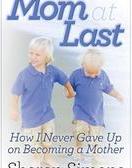QUEBEC – The province is revamping its 1924 adoption rules to take into account the changing nature of families.
“In addition to traditional families, there are reconstituted families, single parents, same-sex parents and a diversity of situations that did not exist before,” Justice Minister Jean-Marc Fournier said Wednesday.
While Quebecers have adapted on their own to these new realities, the Civil Code has lagged behind, Fournier acknowledged.
Hearings on Bill 81, amending the family law chapter of Quebec’s Civil Code, will begin in September, Fournier said, predicting final approval by the spring of 2013.
In addition to opening the code to new forms of parenting, the bill would:
Recognize customary adoption practices by Quebec’s aboriginal peoples;
Affirm the primacy of Quebec’s adoption rules for international adoptions;
Allow an adopted child or the parent of an adopted child to get information, unless there is a veto, and would allow the transfer of pertinent medical information through medical authorities.
Formally allow children to maintain contact with birth parents as well as adopted parents. Under the Civil Code, which remains in force until Bill 81 becomes law, the parental link with the birth parents ends once a child is adopted.
Fournier said that the assumption in 1924 was that the origins of a baby given up for adoption were best forgotten.
The new law would allow a child to have both birth and adoptive parents, although, as Fournier explained, the adoptive parents would have parental authority, and such arrangements would be subject to court approval.
As well, parents having difficulties fulfilling their parental duties could transfer their parental responsibilities to another person while legally remaining the child’s parents.
And in the case of a reconstituted family, a parent could share parental responsibility, in the eyes of the law, with a new spouse.
James Bobbish, chairman of the Cree Board of Health and Social Services of James Bay, said aboriginal customs governing adoption date back to “time immemorial.”
The aboriginal custom of deciding within the community who will take parental responsibility for children in need of temporary or permanent adoption was not recognized by Quebec. As a result, many aboriginal children were adopted by non-aboriginal parents in the 1960s, Bobbish said, noting a survey found that 85 per cent of aboriginal children adopted by non-aboriginals ran away before they were 18.
In international adoption, Fournier said Quebec is responding to a court judgment calling on the province to clarify its role in an area where the federal government retains a say through shared jurisdiction over immigration.
The minister said this provision creates “a small window” to overcome barriers to international adoption.
In allowing contacts between adopted children and their birth parents, Quebec lags behind other provinces.

